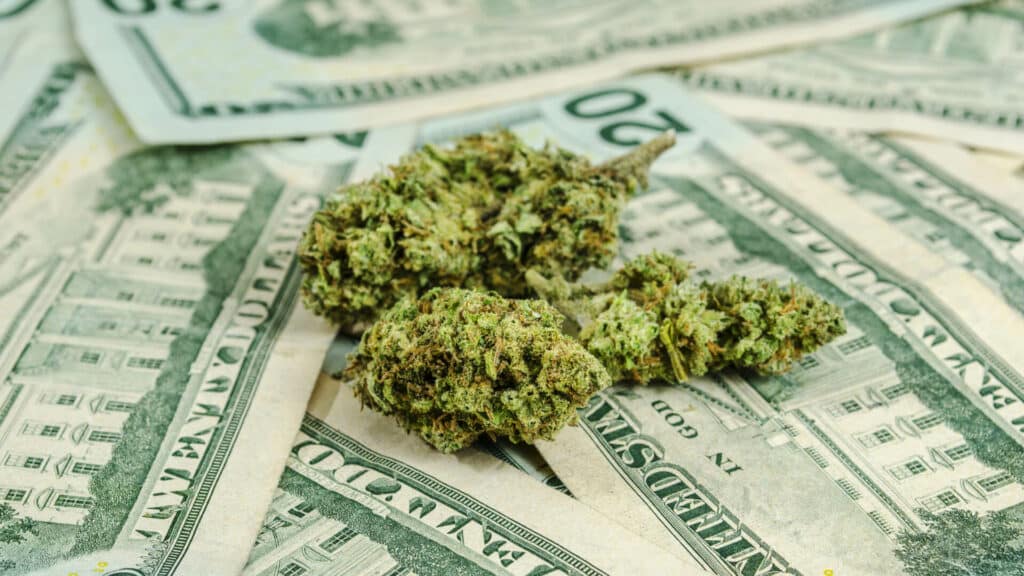 Cannabis Reform Has Become A Defining Issue In Politics
Cannabis Reform Has Become A Defining Issue In Politics
By John Payne, National Cannabis Coalition
Over at The American Prospect, Paul Waldman ponders why so many Democrats support the status quo in the drug war, particularly as it relates to marijuana:
I have a hard time believing that anyone in either party thinks it’s good policy to be locking up hundreds of thousands of people for drug possession, which incurs staggering financial and human cost and has almost no effect on rates of drug use or abuse. You can tell because when they get asked about it, politicians almost never talk in concrete terms about what these policies achieve. Instead, draconian drug laws are justified in terms of “sending the right message,” which is what you say when you have no practical evidence to support your position.
Obviously, undoing the complex system of punishments for drug possession, particularly marijuana possession, is not a simple policy question. Would it be better to have a de facto decriminalization, where it’s still nominally illegal but nobody gets arrested, or would outright legalization, with a regulated marijuana industry, be preferable? The answers depend on predicting an uncertain future. But what we do know is that most politicians don’t even want to talk about it, beyond perhaps eliminating some mandatory minimum sentences and reducing punishments. The reason, of course, is fear, the force that governs so many decisions politicians make. At the moment, there remains a strong incentive to support the status quo, lest you be targeted in your next race as some kind of hippie-lover. The incentives on the other side, on the other hand, are almost nil. When was the last time somebody lost a race for being too tough on drugs? The half of Americans who favor marijuana legalization are not an organized voting bloc that gets together to punish its opponents at the polls.
I don’t think ending cannabis prohibition is all that complicated as a question of public policy, but I think he’s right that politicians have been reluctant to support major reforms to marijuana laws because they don’t see any upside in doing so. With a few noble exceptions, politicians are a cowardly lot, so they aren’t going to stick their necks out an issue if they think it could cost them their jobs, even if they know it’s the right thing to do. However, unlike Waldman, I see evidence that the political calculus for Democrats in this area is changing rather rapidly.
If you follow our work here at the National Cannabis Coalition, you’ve probably heard us talk about the race for the Democratic nomination for Oregon Attorney General, but here’s a brief recap for those of you just joining us. Dwight Holton, former acting U.S. Attorney in Portland, held a strong advantage over former judge Ellen Rosenblum in the race, with endorsements from most of the sheriffs, district attorneys, and newspapers that chose sides. Then Holton called Oregon’s medical marijuana law a “train wreck,” and Rosenblum responded by promising to “make marijuana enforcement a low priority, and protect the rights of medical marijuana patients.” That prompted the National Cannabis Coalition and other groups opposed to cannabis prohibition to donate money and advertising in support of Rosenblum. Rosenblum ended up winning the race with nearly two thirds of the vote.
An even more astonishing example of the shifting tectonic plates of marijuana politics is the race between incumbent representative Silvestre Reyes and Beto O’Rourke in Texas’ 16th congressional district. Reyes was endorsed by President Obama, and Bill Clinton even came down to El Paso to campaign for him, but O’Rourke painted Reyes as out of touch with his constituents. Reyes demonstrated the point by trying to discredit O’Rourke based on his support for legalizing marijuana. O’Rourke stood his ground on the issue and won the election by just enough to prevent a runoff.
It’s premature to say that there is a strong block of voters energized primarily by cannabis law reform, but I think it’s clear that endorsing cannabis legalization is no longer a liability in Democratic primaries. We still have a ways to go before we prove to candidates across the political spectrum that they ignore pro-legalization voters at their own peril, but the National Cannabis Coalition is committed to building the grassroots movement that is necessary to make politicians fall into line with the will of the electorate.
***
John is the campaign director for Show-Me Cannabis Regulation in Missouri and a member of the National Cannabis Coalition’s board of directors. He first became involved in cannabis law reform when he joined the Students for a Sensible Drug Policy chapter at Washington University in Saint Louis in 2001. After graduating from college, John taught high school social studies before embarking on a career as a writer. He worked for the Show-Me Institute, a think tank that advocates free market policies for the state of Missouri from 2009 to 2011, when he joined Show-Me Cannabis Regulation. His articles have appeared in Young American Revolution, The American Conservative, and Reason Magazine, as well as newspapers across Missouri.




